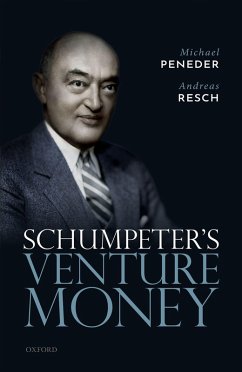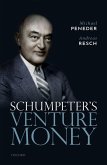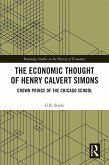Distinctively tying history with theory, political economist Joseph A. Schumpeter reached far back in time to understand what drives economic development and determines its course. Historical and empirical research provided a laboratory for learning. At the same time, he reached for a long-term vision through theoretical inspection and utmost abstraction, seeking to distil a phenomenon's essential nature and function. He believed that good theory can indicate where the economy is headed in the future. Schumpeter's attention to history and theory also informed the plan for this book. Part I trails the historical stream of financial innovations and the scholarly struggle to assimilate them in monetary thought, while Part II focuses on Schumpeter's own monetary theory. Its deliberate reconstruction from scattered sources reveals a strikingly original and still modern conception. Drawing from the detailed study of documents at various archives in Austria, Part III then concentrates on the business history of Schumpeter's failed personal endeavours in banking and as a proto-venture capitalist. Finally, Part IV casts light on the legacy of Schumpeter's monetary ideas on contemporary thought. It depicts how monetary theory initially left them behind, yet has more recently set out to return to his ideas on money, financial innovation, and growth. Overall, a surprisingly coherent picture emerges from the study of Schumpeter's neglected monetary theory, his personal history, and his intellectual legacy on the present day.
Dieser Download kann aus rechtlichen Gründen nur mit Rechnungsadresse in A, B, BG, CY, CZ, D, DK, EW, E, FIN, F, GR, HR, H, IRL, I, LT, L, LR, M, NL, PL, P, R, S, SLO, SK ausgeliefert werden.









